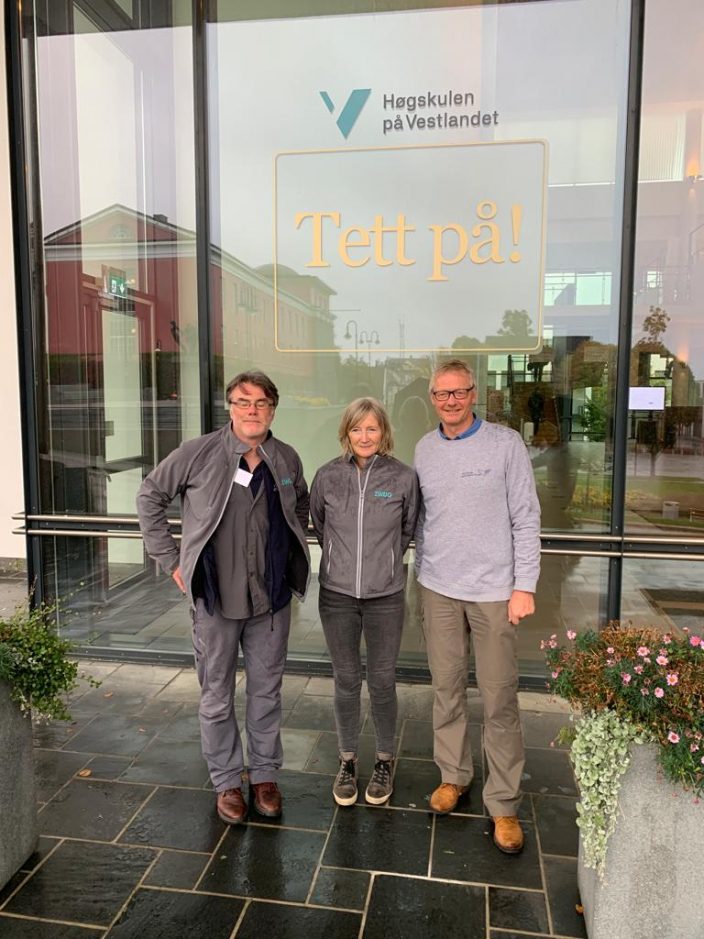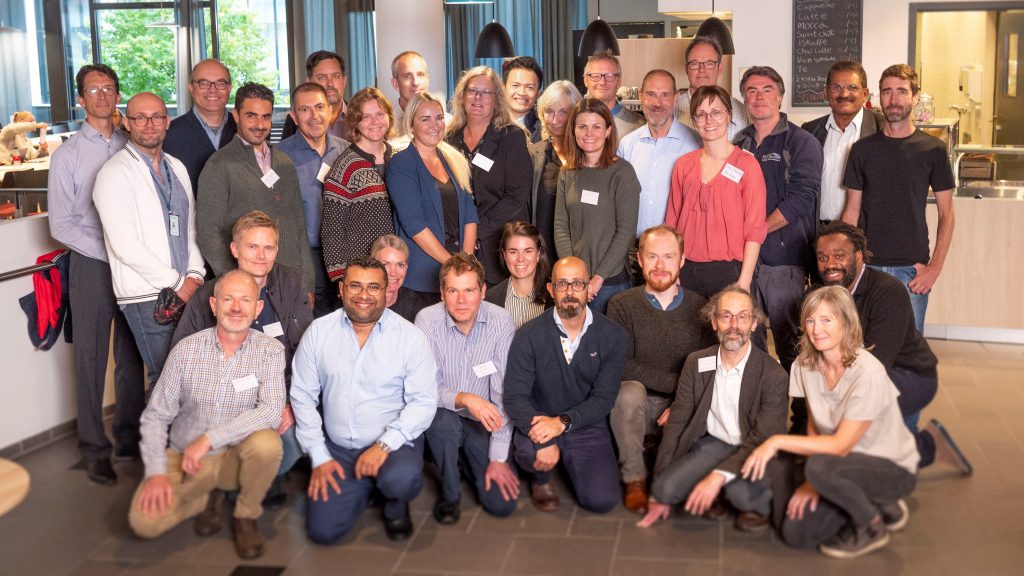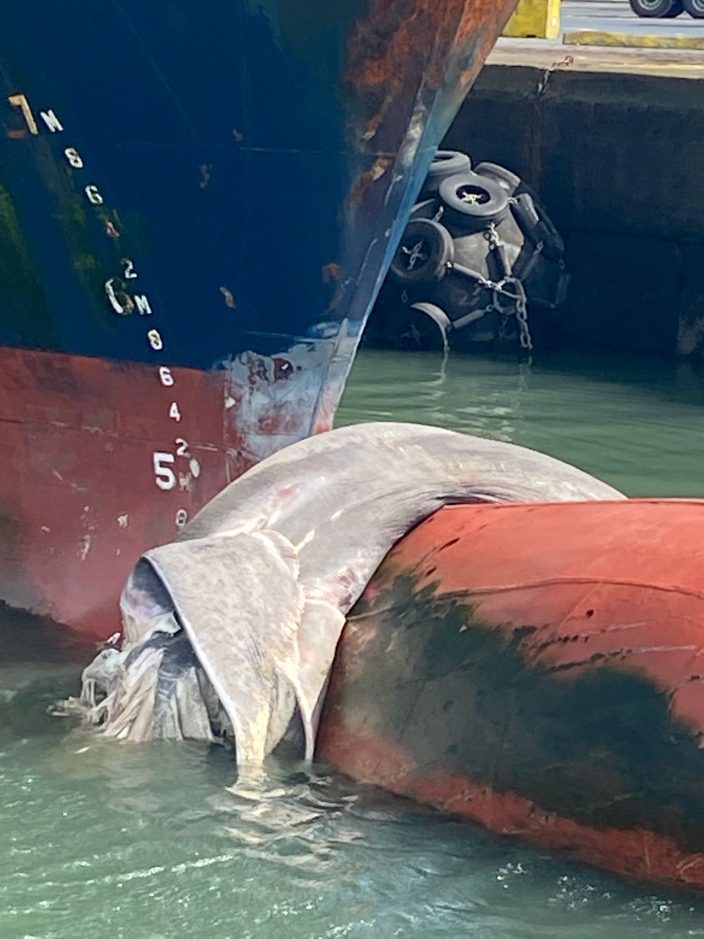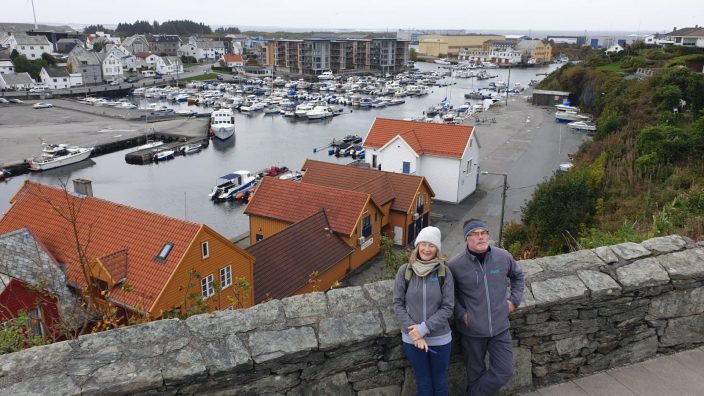**Update ** 3rd October 2025
The OCEAN Project finale was hosted in the European Maritime Safety Agency (EMSA), Lisbon with consortium members presenting their final findings and outputs to both an in-person audience and a remote group via a simulcast to London Shipping Week.
It is interesting to look back on these last 3 years, from the initial ideas and plans to a tangible scalable solution that could mitigate risks posed by shipping to large whales and visa versa.
There are some very clear videos on the OCEAN website demonstrating how the full OCEAN ecosystem could work in the field. The OCEAN reporting app developed by the IWDG can be used as part of a micro-system with the European Hazard Infrastructure (ENHI) or as a part a larger scale or in-depth monitoring project with acoustic buoys, satellite monitoring and habitat modelling feeding in more information to the infrastructure.
The app is available for free here. You just need to register and there you have it. All the components of the OCEAN project are TRL6, which means, they have been demonstrated in the field but aren’t installed in an operational environment…. YET.
Take a look at the final project video here:
*** October 2022 ***
The IWDG are delighted to be partners in a new EU Horizon 2020 funded project which aims to mitigate navigational accidents by supporting the navigators to do an even better job than they do presently. Such support does not only relate to an ‘on-the-spot’ enhancement of navigational awareness – including the presence of marine mammals and floating containers – or an improved performance of evasive manoeuvring and other mitigating actions. The project will go both deeper and wider, to identify and suggest amendments or improvements in the most pertinent factors that may contribute to events becoming accidents: training, technical, human or organisational factors, operational constraints, processes and procedures, commercial pressures or structural issues like shortcomings in rules and regulations
The IWDG were invited due to the success of our new Reporting App which was seen as a huge benefit to the project. We are tasked with developing a similar app for OCEANS to enable reporting of potential hazards at sea. One innovation will be to build machine learning algorithms to enable the probability of a navigational hazard to be assigned automatically (i.e. no human validation). the app wil be one of many tools including habitat niche modelling and acoustic detections to predict the presence of large whales (shipping hazards) to alert mariners.

Pádraig Whooley, Trea Heapes and Simon Berrow, at the University of western Norway in Haugesend, Norway for the start-up meeting
An output of the project is to record a drop in ship collisions with large whales. The IWDG will be working closely with the Universidade dos Açores in Portugal (https://www.uac.pt/) who are work[package leaders.
IWDG Officers, Simon Berrow, Pádraig Whooley and Trea Heapes were in Haugesend, Norway for the start-up meeting to understand more fully our obligations and meet our new partners. It was a very successful meeting and we are clear as to our deliverables over the next three years. Commercial shipping poses a serious threat to marine mammals, especially as ships have become larger and faster. Vessel-induced injuries or mortality have been reported for at least 75 marine species globally, including 48 species of marine mammals, with frequent report for most of the large whales.
European multidisciplinary consortium receives EU funding to increase navigational safety
- The OCEAN project is focused on enhancing operator awareness in navigation, to reduce the frequency of severe accidents like collision and grounding, to mitigate ship-strike risks to marine mammals, and to mitigate the risk presented by floating obstacles to ships.
- The OCEAN project will contribute to an improved understanding of accident root causes, and will strive to reduce the resulting human, environmental and economic losses through socio-technical innovations supporting ship navigators.
- The OCEAN consortium, coordinated by Western Norway University of Applied Sciences, includes 13 partner organizations across 7 different European countries from the industry, academia, NGOs and end users
- The project was awarded funding by Horizon Europe and launched in October 2022, and it is due to run until 2025.
Around 3.000 maritime incidents occur every year in the European maritime fleet. 28% of these accidents are categorised as severe or very severe accidents, resulting in the loss of life onboard, pollution, fire, collisions or grounding. Navigational accidents are dominant in these statistics according to the European Maritime Safety Agency, be it for cargo, passenger or service ships.
The OCEAN project ambition is to contribute to the mitigation of navigational accidents by supporting the navigators to do an even better job than they do presently. The OCEAN consortium will address the most pertinent factors that may contribute to events becoming accidents: training, technical, human or organisational factors, operational constraints, processes and procedures, commercial pressures, and will recommend improvements and amendments to regulations, standards and bridge equipment design approaches.
OCEAN seeks to enhance navigational awareness “on the spot” and to improve the performance of evasive manoeuvring to avoid collision with near-field threats. The project will deliver and demonstrate several human centred innovations. For example, the 4D Situation Awareness Display which will be developed in the OCEAN project will improve the visualisation of navigational hazards, integrating current bridge information systems with marine mammal and lost floating containers detection and tracking capacity specifically developed by the project.
Going further, the project will design and implement a European navigational hazard data infrastructure to feed multi-source observations and hazard predictions relating to floating containers and large aggregations of marine mammals into the existing distributed maritime warning infrastructure. OCEAN seeks to transfer this data ecosystem to relevant European organisations for deployment and maintenance.
Co-funded by Horizon Europe, the European Union’s research and innovation programme, the consortium of 13 members represents 7 European countries, Norway, Greece, Spain, Denmark, Portugal, Ireland and UK, all located on major European coastal regions. Members include a coastal administration, a ship operator, maritime safety and transport researchers, marine mammal ecology and conservation experts, companies specialised in maritime information systems and sensors, a professional organisation, a risk and safety management organisation, as well as data infrastructure, data fusion and satellite imaging specialists. UK participants are supported by UK Research and Innovation Grant Number 10038659 (Lloyd’s Register) and Grant Number 10052942 (The Nautical Institute).
The project launched in October 2022 and is scheduled to run for three years.
About Horizon Europe
Horizon Europe is the EU’s funding programme for research and innovation with a budget of €95.5 billion over the period 2021-2027. The program facilitates collaboration and strengthens the impact of research and innovation in terms of knowledge, technologies and jobs, while tackling global challenges such as climate change.
About Western Norway University of Applied Sciences
Western Norway University of Applied Sciences (HVL) is one of the largest educational institutions in the country, with about 17,000 students. HVL stretches over 5 campuses and 400km on the western coast of Norway. The university offers a broad range of academic programnes at Bachelor’s, Master’s and PhD levels.
OCEAN Consortium
Høgskulen på Vestlandet (Norway) https://www.hvl.no/en/ (Coordinator)
Kystverket (Norway) https://www.kystverket.no/
National Technical University of Athens (Greece) https://www.ntua.gr/en/
Centre Internacional de Mètodes Numèrics a l’Enginyeria (Spain) https://www.cimne.com/
Teledyne Reson A/S (Denmark) http://www.teledynemarine.com/reson
Universidade dos Açores (Portugal) https://www.uac.pt/
Kongsberg Maritime AS (Norway) https://www.kongsberg.com/no/maritime/
Kongsberg Seatex AS (Norway) https://www.kongsberg.com/no/maritime/contact/our-offices/norway-trondheim-seatex-as/
Universitat Politècnica de Catalunya (Spain) https://www.upc.edu/
Irish Ferries Ltd (Ireland) https://www.irishferries.com/
Irish Whale and Dolphin Group (Ireland) https://iwdg.ie/
The Nautical Institute (The United Kingdom) https://www.nautinst.org/
Lloyd’s Register (The United Kingdom) https://www.lr.org/




